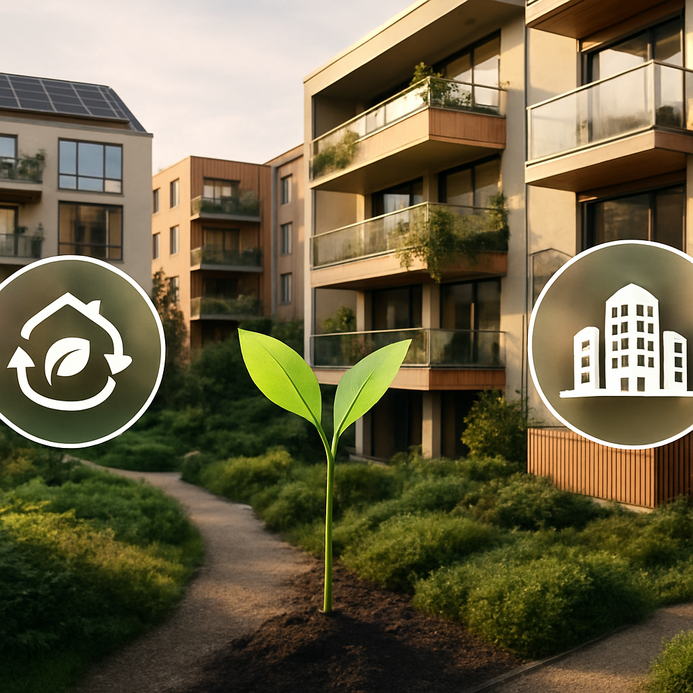NRI Home Loans: Eligibility, Documents & All You Need to Know
Understanding NRI Home Loans: An Introduction
NRI home loans, or NRI mortgage loans, play a crucial role for Non-Resident Indians looking to invest in Indian property. These loans help NRIs overcome the challenges of property investment while ensuring their financial interests are safeguarded.
| Loan Type | Interest Rate (%) | Loan Tenure (Years) |
|---|---|---|
| NRI Home Loan | 7-10% | 5-30 |
| NRI Personal Loan | 10-15% | 1-5 |
These loans allow NRIs to leverage favorable interest rates, making property purchasing financially viable. Eligibility typically depends on factors such as income level, employment stability, and credit score. source outlines specific criteria, which may vary by lender.
Additionally, documentation requirements comprise proof of NRI status, income verification, and property-related documents. The source guide details the necessary paperwork to streamline the application process.
The significance of NRI home loans extends beyond simple investments. These loans enable NRIs to maintain a connection with their homeland, catering to personal needs such as vacation homes, family residences, or rental properties. Moreover, favorable tax structures incentivize investment, attracting NRIs seeking diversification in their asset portfolio.
Whether considering a long-term financial commitment or eyeing a property for personal use, NRI home loans present a viable solution. For further insights on assessing eligibility and advantages, refer to our article on NRI property buying.
Investing in real estate, especially in emerging markets like India, is increasingly appealing, making NRI housing loans a popular choice among the diaspora. For more detailed comparisons of loan offerings, check out source.
Eligibility Criteria for NRI Home Loans
To qualify for an NRI mortgage loan, several eligibility criteria are essential. Understanding these requirements helps streamline the loan application process and ensures you meet the necessary guidelines.
Age Criteria
Typically, NRIs need to be at least 21 years of age to apply for a home loan. However, some banks may allow applicants as young as 18, provided they can demonstrate a stable income source. The maximum age limit for loan repayment usually ranges from 60 to 70 years.
Income Requirements
The income criteria can vary among banks but generally include proof of stable income and employment. Most lenders require a minimum annual income of ₹20 lakh for NRI applicants. It’s crucial to provide evidence of your income, such as salary slips, bank statements, or tax returns from the last two years.
Residency Status
NRIs must have overseas citizenship and must be India residents for less than 182 days in the last financial year. Home loan options for Foreign Nationals of Indian Origin (PIOs) also exist, but their eligibility can differ.
Documentation
Essential documents needed include:
- Passport copies
- Work permit or visa
- Bank statements for the previous six months
- Income proof documents
- Property documents
| Criteria | Minimum Age | Minimum Income | Residency Status |
|---|---|---|---|
| NRI Applicants | 21 years | ₹20 lakh | Non-resident Indian |
| PIO Applicants | 21 years | Varies | Must have overseas citizenship |
Additional Points
– Many banks also consider the applicant’s credit score; a score above 750 can improve loan approval chances.
– Lenders assess debt-to-income ratios to determine repayment capabilities.
– It’s always advisable to check with multiple banks like source, source, or source for specific eligibility details.
Understanding the right eligibility criteria can pave the way for securing your NRI home loan smoothly. For more insights, consider exploring articles such as NRI Capital Gains Tax on Property or How to Select the Right Home Loan Repayment Period.
Required Documentation for NRI Home Loans Applications
When applying for an NRI mortgage loan, certain documentation is crucial to establish eligibility. Below is a comprehensive list of documents required:
| Document Type | Details |
|---|---|
| Identity Proof | Valid passport and visa. |
| Address Proof | Utility bill or a rental agreement. |
| Income Proof | Salary slips, tax returns, and bank statements for the last six months. NRI personal loan or income proof may also be necessary. |
| Property Documents | Sale deed, no-objection certificate from the builder, and land title documents. |
| Existing Loan Documents | If applicable, details of any existing loan should be included. |
| Photographs | Passport-sized photographs, typically 2-3. |
Banks may also ask for additional documentation based on their requirements. It is recommended to prepare a thorough set of documents to avoid any delays in processing your NRI home loan application.
For further insights, you can refer to articles such as source, Home Loans for NRIs in India: Compared, and NRI Home Loans Eligibility, Calculator and Interest Rate.
For more related information, check out our articles on NRI capital gains tax on property and 10 factors that speed up home loan approval.
Income Requirements for NRI Home Loans
When considering an NRI housing loan, understanding the income requirements is crucial. Banks typically set minimum income thresholds based on the loan amount and applicant’s financial stability.
Minimum Income Thresholds
Most banks in India expect NRIs to demonstrate a minimum annual income ranging from INR 6 lakh to INR 10 lakh. This amount varies by bank and is influenced by several factors such as location, employment stability, and the loan amount applied for.
| Bank | Minimum Annual Income | Loan Amount Range |
|---|---|---|
| HDFC Bank | INR 6 lakh | INR 20 lakh – 10 crore |
| SBI | INR 10 lakh | INR 20 lakh – 5 crore |
| ICICI Bank | INR 6 lakh | INR 30 lakh – 25 crore |
| PNB Housing Finance | INR 8 lakh | INR 25 lakh – 10 crore |
Banks look at the borrower’s income sources, such as salaries, investments, or rental incomes. A stable income source demonstrates financial reliability and enhances loan eligibility.
Financial Metrics Assessment
In addition to income, banks also assess financial metrics like the Debt-to-Income (DTI) ratio and credit score. A lower DTI ratio, ideally below 40%, reflects better affordability. Typically, a credit score of 700 or higher is preferred for good NRI home loan approval.
For a detailed understanding of eligibility criteria, including documentation needed, check resources like source and source.
For more tips on obtaining NRI personal loans and home loans, you can explore articles on home loan approval tips and NRI real estate investment FAQs. Understanding these factors helps streamline the process of securing an NRI mortgage loan effectively.
The Importance of Co-Applicants in NRI Home Loans
Having a co-applicant in an NRI mortgage loan can significantly enhance your chances of securing approval. Co-applicants, often family members or close friends, bring additional financial strength and credibility to the application. This is particularly beneficial for Non-Resident Indians (NRIs) who seek housing loans in India.
Strengthened Financial Profile
A co-applicant can improve your overall financial profile by increasing the combined income. This can elevate your affordability, allowing for a larger loan amount and lower monthly EMIs. Banks in India often evaluate the combined income of both applicants when determining eligibility. The eligibility criteria commonly require co-applicants to have a stable income source, demonstrating reliability and financial health.
Enhanced Creditworthiness
Including a co-applicant can also enhance creditworthiness. If the co-applicant has a good credit score, it can positively impact the loan application. A better credit score can lead to lower interest rates and reduced processing fees, which are crucial factors in mortgage loans. For example, banks like SBI and HDFC provide loans to NRIs with a focus on credit history and repayment capability. [Source].
Spread of Risk
A co-applicant also helps to distribute the financial risk. If one borrower faces difficulties in repayment, the other can provide support. This aspect is particularly vital for NRIs, who sometimes deal with currency fluctuations and financial uncertainties in their host countries.
Co-Eligibility for NRI Home Loans
Moreover, a co-applicant can improve eligibility for an NRI personal loan if the need arises in the future. With increased financial backing, banks tend to offer more favorable terms and conditions. [Source].
| Factor | Benefits |
|---|---|
| Increased Income | Higher loan eligibility and amount |
| Better Credit Score | Lower interest rates and fees |
| Risk Distribution | Support if one borrower faces repayment issues |
Using a co-applicant can generate multiple advantages for NRI housing loans. As this common financial strategy proves effective, understanding co-application benefits is essential for NRIs planning home purchases in India.
For more insights on managing your loan options, consider exploring related articles such as the importance of location in real estate or factors that speed up home loan approval.
FAQ
1. What are NRI home loans?
NRI home loans are financial products designed for Non-Resident Indians to facilitate the purchase of property in India.
2. What is the eligibility criteria for NRI home loans?
Eligibility criteria typically include age (minimum 21 years), income requirement (at least ₹20 lakh per annum), and proof of NRI residency status.
3. What documents are required for NRI home loan applications?
Key documents include a valid passport, visa, bank statements, income proof (like salary slips), property documents, and photographs.
4. Can a co-applicant improve my chances of getting an NRI home loan?
Yes, having a co-applicant can enhance your financial profile and creditworthiness, which improves loan approval chances.
5. What is the minimum income requirement for NRI home loans?
Most banks require a minimum annual income ranging from ₹6 lakh to ₹10 lakh depending on the lender.













